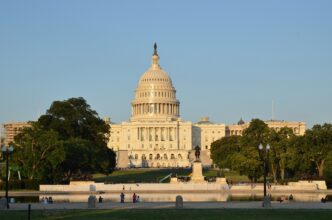Executive Summary
- A prominent labor leader contends that recent election outcomes were primarily driven by the economic pressures facing working families, including rising costs for food, housing, and healthcare.
- Polling data indicates a significant portion of the U.S. population is experiencing stress over grocery bills and has taken on debt to pay for essential goods and medical care.
- Retirement security is a major concern, with studies showing nearly half of working-age Americans have no retirement savings.
- The analysis warns that proposed federal cuts to social programs like Medicaid, SNAP, and ACA subsidies could worsen economic conditions for millions.
Recent election results across the United States are a direct reflection of the growing economic anxiety felt by working families struggling with the rising cost of living, according to John Durso, president of the Long Island Federation of Labor. In a recent analysis, Durso stated that issues such as job insecurity, housing costs, and access to affordable healthcare and food have become central concerns for voters, overriding partisan politics.
Durso pointed to specific polling data to underscore the financial pressures on American households. An Associated Press-NORC poll found that nearly half of all Americans identify the cost of groceries as a major source of stress, with food prices climbing nationwide. According to the same survey, 35% of Americans have resorted to borrowing money or using credit cards to cover essential expenses. Similarly, a Gallup-West Health survey indicated that over 91 million Americans can no longer afford quality medical care, forcing many to choose between treatment and other necessities like food.
The analysis also highlighted a growing crisis in retirement security. Citing the Federal Reserve’s Survey of Consumer Finances, Durso noted that nearly half of working-age Americans have no retirement savings. For those who do have savings, the average balance is often insufficient to cover even a single year of living expenses, compelling many older Americans to work past the traditional retirement age of 65 out of necessity rather than choice.
Durso warned that proposed federal budget cuts could exacerbate these economic hardships. Reductions to programs such as Medicaid, Affordable Care Act subsidies, and the Supplemental Nutrition Assistance Program (SNAP) would not only harm vulnerable families but also negatively impact the broader economy, affecting hospitals, grocery stores, and farms.
In his conclusion, Durso emphasized that the labor movement will continue to advocate for elected officials who prioritize policies aimed at strengthening the social safety net and supporting workers. He asserted that the well-being of working people is fundamentally linked to the health of the national economy.






